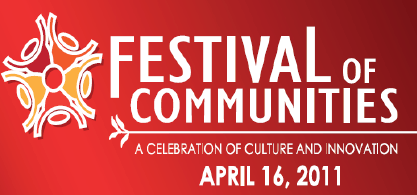Location
University of Nevada, Las Vegas
Start Date
16-4-2011 2:00 PM
End Date
16-4-2011 3:30 PM
Description
AIDS denialism is a growing issue in many parts the world. Through scholarly journal articles, book resources and other research tactics, further understanding how HIV/AIDS denialism is unethical can be distinguished. Discovering that AIDS is most prominent in South Africa explains why denialism is as critical as it is. However, the unethical aspect of AIDS denialism is in effect particularly amongst families. When a South African inhabitant realizes they have AIDS, they feel outcasted by their families due to shame. They fear as though they will be disowned because they have flaws that are unacceptable. These family values are significant because those who diagnosed or affected would rather be unaware of the disease to maintain social acceptance . However, the difference of ethics in society affects how AIDS denialism is perceived. In the United States, being unaware of AIDS diagnosis is considered a social faux pas. Thanks to advertisements, educational classes and overall social awareness, being conscience is implied to be important because of society’s openness with sexuality. As for South Africa’s social standards, lack of resources, poor government and unawareness impact the ethical value of AIDS because they have not been taught otherwise concerning the actual disease. Their knowledge about HIV/AIDS is limited; therefore they lack the understanding of the risks of the disease.
Keywords
AIDS (Disease); AIDS phobia; Denial (Psychology); Families; South Africa
Disciplines
Bioethics and Medical Ethics | Disease Modeling | Health Policy | Immune System Diseases | Public Health | Public Health Education and Promotion | Sociology | Virus Diseases
Language
English
Included in
Bioethics and Medical Ethics Commons, Disease Modeling Commons, Health Policy Commons, Immune System Diseases Commons, Public Health Education and Promotion Commons, Sociology Commons, Virus Diseases Commons
AIDS denialism
University of Nevada, Las Vegas
AIDS denialism is a growing issue in many parts the world. Through scholarly journal articles, book resources and other research tactics, further understanding how HIV/AIDS denialism is unethical can be distinguished. Discovering that AIDS is most prominent in South Africa explains why denialism is as critical as it is. However, the unethical aspect of AIDS denialism is in effect particularly amongst families. When a South African inhabitant realizes they have AIDS, they feel outcasted by their families due to shame. They fear as though they will be disowned because they have flaws that are unacceptable. These family values are significant because those who diagnosed or affected would rather be unaware of the disease to maintain social acceptance . However, the difference of ethics in society affects how AIDS denialism is perceived. In the United States, being unaware of AIDS diagnosis is considered a social faux pas. Thanks to advertisements, educational classes and overall social awareness, being conscience is implied to be important because of society’s openness with sexuality. As for South Africa’s social standards, lack of resources, poor government and unawareness impact the ethical value of AIDS because they have not been taught otherwise concerning the actual disease. Their knowledge about HIV/AIDS is limited; therefore they lack the understanding of the risks of the disease.

